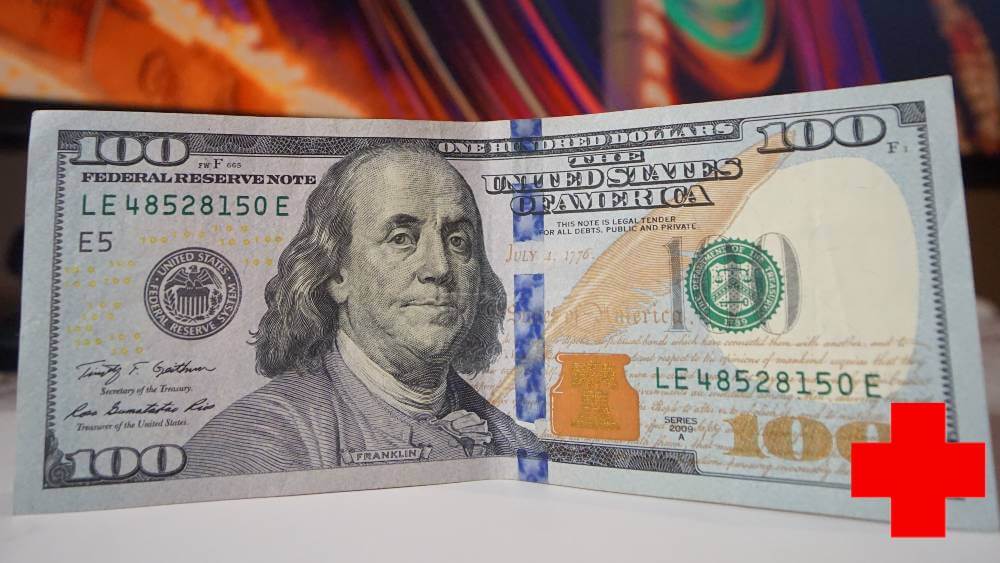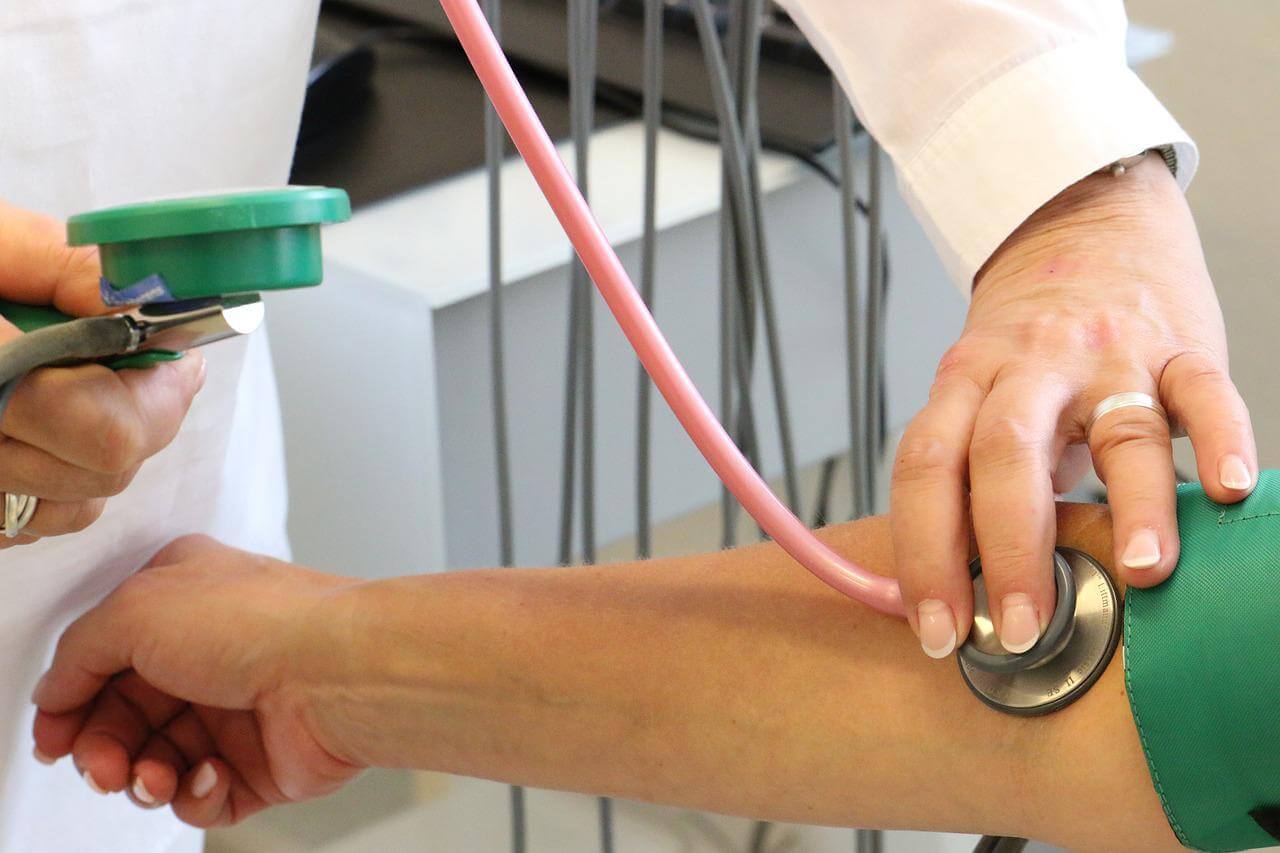Hello, our dear reader! Welcome to another insightful article on Nurse Practitioner Salary.
In this session, you’ll learn about how much Nurse Practitioners earn and the key factors that influence their earning potential.
By the end of this well-detailed article, you’ll know everything about a Nurse Practitioner’s salary.
We’ll breakdown our discussion into:
- Average Nurse Practitioner Salary
- Nurse Practitioner Salary by years of experience, specialty, geographical location
- How do Nurse Practitioner salaries compare to similar jobs?
- Key ways for Nurse Practitioners to Earn More
Let’s get started right away!
Average Nurse Practitioner Salary

Nurse Practitioners is one of the most gratifying jobs in nursing in terms of career fulfillment and financial compensation.
A Nurse Practitioner’s median salary is double the national average compensation for most occupations in the U.S.
Entry-level Nurse Practitioners’ average annual salary is $84,120, which is $40k more than the average yearly income for most professions.
According to the U.S. Bureau of Labor Statistics, Advanced Practice Registered Nurses, including Nurse Practitioners, Nurse-Midwives, and Nurse Anesthetists, earn an average annual income of $123,780.
According to the same platform, a Nurse Practitioner’s hourly pay is 59.51
On the other hand, Payscale.com projects that the average NP salary is $100,355.
The platform estimates that the NP’s base salary ranges from $82k to $126k.
According to the platform, the hourly rate is $51.39.
At the same time, Indeed estimates an average annual salary of $120,787.
Going by the statistics we’ve shared, NPs are well compensated.
Perhaps this is because of the role their play in the healthcare industry.
NPs provide both primary and specialty patient care.
Their scope of work requires high-level qualifications.
And that’s why the entry-level education qualification for NPs is a Master of Science in Nursing.
Of course, there’s a good number of Nurse Practitioners with a Doctor of Nursing Practice.
We can both agree that the financial reward is worth it.
Important to note at this point is that these are averages, and several factors may influence the exact amount an NP takes home.
And that’s our next area of focus in this discussion.
Let’s delve into how experience, specialty, geographical location, and place of work play a role in a Nurse Practitioner’s pay.
Nurse Practitioner Salary by Years of Experience

As with any other profession, experience plays a key role in how much one takes home.
Usually, the starting salary is low, but as one gains more experience in the field, their income increases.
It’s no exception with Nurse Practitioners.
According to Payscale.com, NP’s starting salary is $92,485.
The amount constitutes the base salary, bonus, and overtime payments.
During their early career, around 1-4 years’ experience, Nurse Practitioners’ wage averages $97,485.
As they gain more experience and advance in careers, the salary of a Nurse Practitioner increases to $103,325.
At this point, they have around 5-9 years of work experience.
The salary growth doesn’t stop there.
Experienced APRNs with 10-19 years of experience earn an annual income of $109,740.
That wraps Payscale.com NPs’ salaries projection by experience.
Indeed also gives us a snippet of how much Nurse Practitioners make the longer they stay in the industry.
According to Indeed, NPs with less than a year’s experience take home around $106,247.
At the early career level, these healthcare professionals can expect an average of $129,283 per year.
The experienced Nurse Practitioner with over ten years’ experience makes $131,862 per year.
Clearly, Nurse Practitioner’s salaries increase with their level of experience.
One stands to earn more as they advance in their career.
In the same breath, NPs with advanced education earn more than their counterparts.
The average salary for NPs with a Doctor of Nursing Practice is $120,660.
Those with MSN earn an average of $111,260.
Nurse Practitioner Salary by Specialty

Nurse Practitioners’ salaries are also influenced by their area of specialization, that is, the patient population an NP treats.
NPs often specialize in their areas of interest and skill set.
Usually, specializations determine the opportunities one can leverage and pay level.
Some areas of specialization pay more than others.
With that said, let’s look into NP Salary by specialty.
The 2020 National Workforce Survey by the American Association of Nurse Practitioners (AANP) reveals that the top earners include General Nurse Practitioners, Psychiatric Nurse Practitioners, and Neonatal Nurse Practitioners.
A General Nurse Practitioner’s salary is $115,800.
The second top earners are Psychiatric Nurse Practitioners.
Psychiatric NPs work with patients suffering from mental health conditions and behavioral issues.
This NP’s average annual income is $112,219.
In the third place is Neonatal Nurse Practitioners.
These medical professionals specialize in caring for premature or sick newborns in the neonatal intensive care unit.
Neonatal Nurse Practitioners earn $108,132.
Family Nurse Practitioners are equally well-compensated.
FNPs’ average income is $105,898.
These healthcare professionals care for a wide range of patients, from infants to the elderly.
Next, we have Acute Care Nurse Practitioners.
Acute Care Nurse Practitioner’s salary is $104,701.
Acute Care NP works in hospital settings, aiding patients with acute or exacerbated chronic conditions through treatment and recovery.
Sixth on the list of top earners are the Emergency Nurse Practitioners.
These NPs work with patients that need urgent care.
Their salary is around $103,477.
According to the survey, the areas of specialization that pay the least include Women’s Health Nurse Practitioners, Pediatric Nurse Practitioners, and Adult-Gerontology Nurse Practitioners.
So, how much do these NPs make?
Women’s Health NPs’ average annual income is $96,113.
Women’s Health NPs, as the name suggests, treat women with health complications related to reproductive health or other female health issues.
Next, Pediatric Nurse Practitioners take home roughly $92,544.
These professionals care for children.
And lastly, we have Adult-Gerontology NP earning $89,521.
Adult-Gerontology NP specializes in the care of patients who are teenagers and above.
That’s our overview of NP Specialties by salary.
When thinking of a career as a Nurse Practitioner, it’s important to think about the area of specialization beforehand.
While pay is important in this consideration, what’s more important is your skills and areas of interest.
So, don’t let the big bucks deceive you into a specialization you won’t enjoy.
Nurse Practitioner Salary by State and City

The average salaries of Nurse Practitioners also vary by geographical location.
NPs working in large urban cities earn more than their counterparts in rural areas.
This is because the cost of living in cities is pretty high compared to rural areas.
Of course, there are a dozen other factors associated with the high pay in urban areas.
The May 2021 report by the U.S. Bureau of Labor Statistics highlights the following as the top five paying states in the country: California, New Jersey, New York, Washington, and Massachusetts.
According to the bureau, California is the top payer.
Here, a Nurse Practitioner’s annual average salary is $151,830.
In New Jersey, the second leading top-paying state, NPs earn $137,010 annually.
Number three is New York City, where the average NP salary is $133,940.
Next, we have Washington paying Nurse Practitioners $130,840.
Closely behind Washington is Massachusetts.
In Massachusetts, Nurse Practitioners’ median salary is $129,540.
That marks the list of the top payers.
On the flip side, we have the lowest-paying states.
BLS ranks Tennessee, Alabama, Florida, South Carolina, and Kentucky as the least paying states.
According to the Bureau, Nurse Practitioners in Tennessee earn $99,370.
Their colleagues in Alabama take home around $99,790.
Florida is the third least paying state.
In Florida, a Nurse Practitioner’s annual salary is $101,190.
Fourth on the list of the least paying states is South Carolina paying NPs an average annual income of $101,190.
And finally, we have Kentucky, whose average NP salary is $102,460.
Let’s shift our focus to the cities that pay NPs the most.
Since California tops the list of top-paying states, it’s no wonder the top-paying metropolitan areas are also found in California.
The U.S. Bureau of Labor Statistics places San Jose-Sunnyvale-Santa Clara as the top-paying metropolitan area.
Here, NPs’ average income is $197,870.
Next is Napa, with an average NP salary of $187,700.
At number three, we have Vallejo-Fairfield.
Nurse Practitioners’ pay in Vallejo-Fairfield is $180,380.
San Francisco-Oakland-Hayward is another top-paying metro area in California.
NPs make around $177,160.
Yuba City closes the list of top-paying cities with an average annual income of $159,260.
That’s all on the top-paying locations for Nurse Practitioners.
While it’s great to work in states or cities that pay NPs the most, it’s equally important to look into the cost of living in these cities.
If you are starting out, a Nurse Practitioner starting salary may not be enough to sustain you in these cities.
For that reason, less popular cities may be a good starting point.
Nurse Practitioner Salary by Place of Work

Nurse Practitioners work in a wide range of settings.
You’ll find them in the office of Physicians, hospitals, government agencies, or private practices.
Their salaries in all these sectors are different because their responsibilities, scope of work, and workload are different.
Here is an outline of the Nurse Practitioners’ place of work and how much they earn in the different work environments.
Colleges, Universities, and Professional Schools: NPs working in Institutions of learning may be full-time professors or work in the administration.
Others may work part-time in clinical and partly in training.
Nurse Practitioners here earn around $101,125.
The salary ranges from $70,980 to $131,270.
Outpatient Care Centers: NPs may work in urgent care, minute clinics, prisons, schools, or community health centers.
NPs may be the primary care providers in these setups, caring for patients with acute illness, wounds, or minor health issues.
Nurse Practitioners’ median salary in outpatient care centers is $116,460.
The majority earn between $79,050 and $153,870.
Hospitals: Nurse Practitioners’ job in hospitals involves treating and caring for patients to recover.
They may also be in charge of particular sections of the hospital, like discharge or admissions.
In rural setups, they may work independently as the sole provider.
Nurse Practitioners in hospitals take home $84,680-$150,160 per year.
Their annual average income is $117,420.
Offices of Physicians: According to AANP, Physician’s offices employ around 75% of NPs.
In this setup, NPs diagnose, prescribe and treat patients.
They may work in different areas of specialization, including oncology, neonatal, pediatric, adult, mental health, acute care, etc.
In Physician offices, APRN salaries averages around $107,315.
The majority earn between $73,180 and $141,450.
How Do Nurse Practitioners’ Salaries Compare to Similar Jobs?

As we’ve discovered, Nurse Practitioners are well-compensated.
But how does their salary measure up against related nursing occupations?
We are about to find out.
Nurse Practitioners are related to Nurse-Midwives, Physician Assistants, Nurse Anesthetists, and Clinical Nurse Specialists.
Indeed places Nurse Practitioner’s average salary at $120,787.
Clinical Nurse Specialists earn $91,300 annually.
Nurse-Midwives’ annual income is $111,130.
Physician Assistants make $115,390 annually.
From the statistics, these ARNP salaries are slightly lower than Nurse Practitioner salaries.
The average annual salary for Nurse Anesthetists is $154,540.
Nurse Anesthetists earn more than Nurse-Midwives.
Key Ways for Nurse Practitioners to Earn More

Nurse Practitioners can earn more with additional certification, work experience, advanced nursing programs, and administrative duties.
Let’s review how these factors can influence an NPs earning potential.
Pursue Advanced Education and Additional Certification
The entry-level education requirement for Nurse Practitioners is a master’s degree.
However, Nurse Practitioners who pursue DNP to advance their careers earn more than their counterparts with MSN.
Moreover, additional specialization certifications are a great way to set oneself apart and explore opportunities in different work environments.
One can specialize in administering anesthesia, pediatric or urgent care.
There are many specialization options.
Nurse Practitioners can serve a broad spectrum of patients if they have additional certification.
They also develop more valuable skills that are an asset in their current position and can still come in handy in case they want to pursue other opportunities.
Bottom line, certification makes Nurse Practitioners more marketable.
Explore New Opportunities in Nursing
Nursing practice is diverse.
And Nurse Practitioners are not confined to one area.
They can acquire additional skills and competencies in different areas in the industry, which will broaden their knowledge and expertise.
Additionally, Nurse Practitioners in States that allow NP to prescribe medication earn more than those who don’t prescribe medication.
Moreover, NPs with advanced education can explore teaching opportunities in learning institutions to supplement their income.
Gain Work Experience
It goes without saying that experience plays a key role in how much NPs earn.
Therefore, NPs can leverage their new area of knowledge and take up additional responsibilities by pursuing additional certifications.
Taking up additional clinical responsibilities can be a leeway to earn experience and increase the potential to rise in the ranks.
They can also pursue advanced positions like Nurse Administrators or take up other managerial positions.
Additionally, experience comes with the ability to effectively deliver in a fast-paced work environment, which leads to managing more workload.
Hence, the potential for higher pay.
Conclusion

Nurse Practitioners are part of the larger Advanced Registered Nurse Practitioner, a section of medical professionals with advanced qualification, which comes with additional responsibilities.
A Nurse Practitioner’s salary is well above the national average for many occupations, even at the entry level.
However, it’s important to note that the impressive salary statistics are projections.
And the actual amount an NP takes home depends on their experience in the industry, specialty area, geographical location, and place of work.
What’s more, Nurse Practitioners have the potential to increase their salary through advanced education, earning certification, gaining experience, and taking up administrative duties.
FAQs

Can a Nurse Practitioner get rich?
A Nurse Practitioner’s average salary is $120,787. They earn more than Registered Nurses who make $77,460 or Nurse Instructors earning $84,060. Nurse Practitioners are rich compared to other nursing professionals without advanced education. NPs are part of ARNPs who make up top earners in the nursing practice.
Can Nurse Practitioners make 200k?
Under normal circumstances, Nurse Practitioners cannot make an average income of $200k per year. The top 90th percentile earns around $182,750. And so, even with the different variables like education level, years of experience, specialty, and place of work, NPs cannot make $200k.
How to negotiate a Nurse Practitioner’s salary?
– Research salary averages for the job title in your region
– Understand the employers’ compensation strategies
– Ask for a few days to think through the salary offer
– In case of a counteroffer, be polite and positive
– Be prepared to walk away if the negotiation fails
Do Nurse Practitioners make good money?
Yes. According to BLS, we can say that Nurse Practitioners make good money given that the national average for NPs is $123,780. NPs’ salary is twice the national average of many occupations in the U.S. At the entry level, NPs make $40k more than most occupations. They earn $92,485.
What is the highest-paid Nurse Practitioner?
According to a survey by AANP, Psychiatric/Mental Health Nurse Practitioners for adults earn the highest salary. They make $125,000. The next top earners are Neonatal Nurse Practitioners earning $122,500. In the third place are Acute Care Nurse Practitioners whose annual average income is $120k.
What is the highest paying state for Nurse Practitioners?
According to BLS May 2021 statistics, the top-paying state is California, followed by New Jersey, then Newyork, Washington, and finally Massachusetts. NPs in California earn $151,530. Their counterparts in New Jersey take home around $137,010. In New York, NPs’ average salary is $133,940, while in Washington, they earn $130,840.
What is the lowest-paid Nurse Practitioner?
According to the AANP survey, Women’s Health Nurse practitioners are the least paid, earning $105k annually. Next on the list are gerontology and primary care NPs who earn $107k. Family Nurse Practitioners also make the same amount. Pediatrics Nurse Practitioners are next, with an average annual income of $108,500.
Where do Nurse Practitioners make the most money?
Nurse Practitioners working in Physician’s offices make the most money. NPs working full-time in this setup earn $104,315. Their salary ranges from $73,180 to $141,450. NPs who work in Physician offices have a ton of responsibilities. They diagnose, prescribe medication, and treat patients.
How much does a Nurse Practitioner make an hour?
According to the U.S. Bureau of Labor Statistics, NPs earn $59.51 per hour. Payscale.com projects an hourly rate of $51.39. Generally, the hourly rate ranges from $51 to $60. The hourly pay includes the base plus any other incentives the NP is eligible for.








